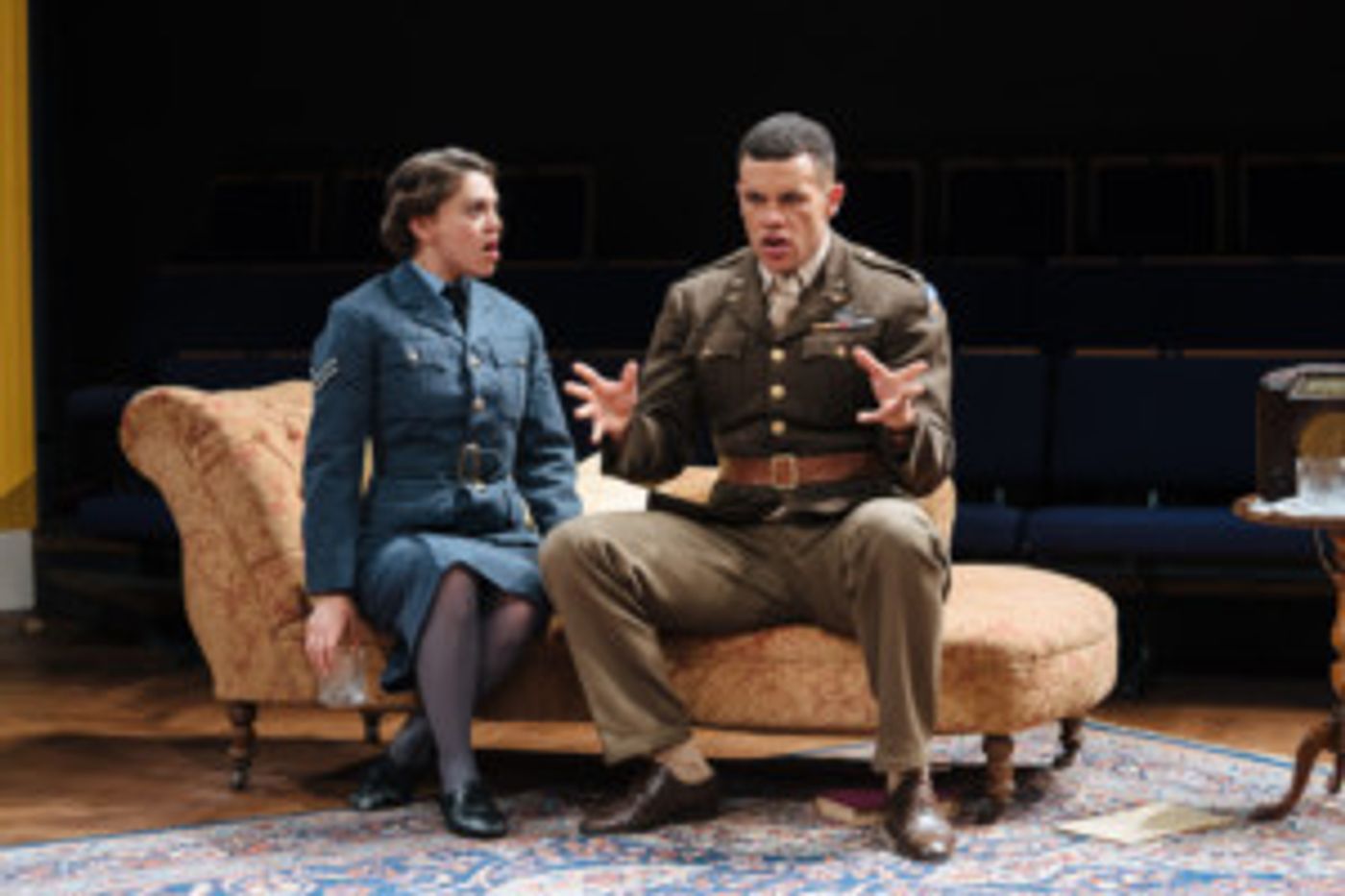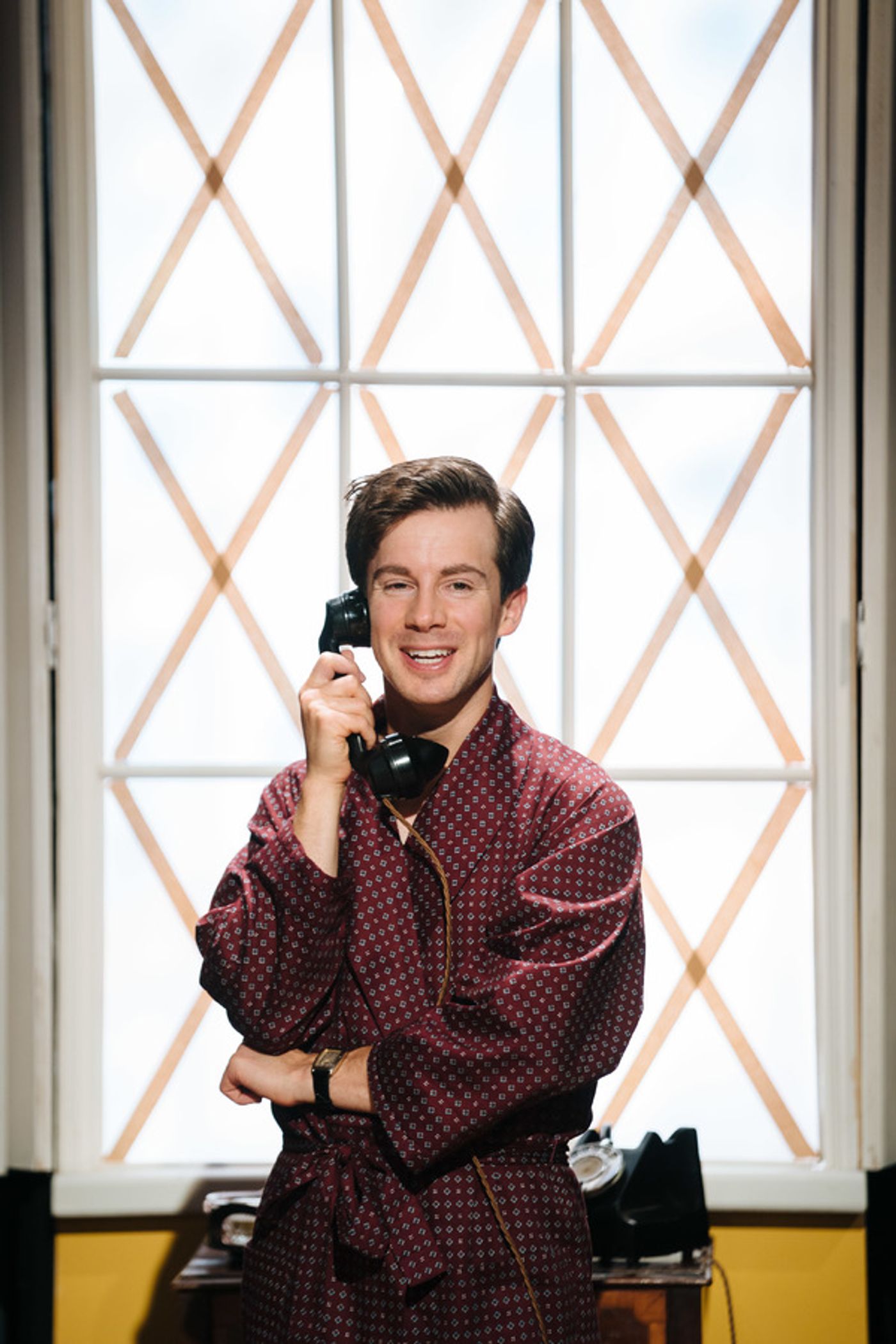Interview: Paul Miller Talks WHILE THE SUN SHINES at Orange Tree Theatre

in While the Sun Shines
Paul Miller has had a diverse theatre career. He's produced work for powerhouses like Sheffield Crucible and the National Theatre, championed the Fringe as Associate Artist at the Bush, and then, in 2014, took the reins as Artistic Director of the Orange Tree Theatre - a position held by only one other, Sam Walters, for over 40 years.
Having previously directed a critically acclaimed, sell-out production of French Without Tears, Miller talks to us about staging another of Terence Rattigan's comedies, While the Sun Shines, a play about 'making hay' during the London Blitz.
Can you give us an overview of While the Sun Shines?
It's a brilliant comedy written in the middle of the Second World War, by Terence Rattigan, as entertainment and a farce to cheer everybody up.
It's very representative of the sorts of people who were swirling around London during the war. A young British earl, who is a seaman in the navy, lives in a posh set of apartments near Piccadilly. He is going to get married, but he's brought home a young American. They're sharing his flat for the night, which triggers a whole series of possible developments. People are getting confused over who is supposed to be spending the night with who - and in which bed!
It all takes place in one room, and [designer] Simon Daw has really made the most of resources in a small space. You'll feel, as the audience, that you are privileged voyeurs to the goings-on in this sitting room and bedroom.
You've directed a Rattigan before - what do you like about him?
Yes, French Without Tears, which is a 1930s comedy and was very successful. It felt like a natural progression to do his next comedy.
He's a brilliant writer. His later, more overtly serious plays are about the human heart. Particularly, about British people's difficulty with knowing who they are and talking honestly about their feelings. In these plays [Tears and While the Sun Shines], it's communicated in more comedic form.

While the Sun Shines was Rattigan's longest-running play in the West End. Why is it a good time to put it back on the stage now?
Partially because we all need cheering up. There's also been a resurgence of interest in Rattigan over the past 20 years. Understandably, people have focused on his wordy, more serious plays. A major production of While the Sun Shines hasn't been done in London for a while. I thought people would find it interesting to see this sort of counterpoint to his more serious work - such as The Deep Blue Sea, for example.
Have you got a favourite moment from the rehearsal period?
This might be a cliché... but it's true: the cast are all delightful. They really are fantastic. Great fun. We've had a fantastic time - and I think that will communicate itself to the audience.
This is your fifth year with Orange Tree. How have you found getting it more involved in theatre conversation?
Yes, that's we tried to do: to get Orange Tree back into the London - and national - theatre conversation. We've done this with contemporary revivals and, crucially, by doing new plays. There's something about our auditorium that is special and that really makes these plays sing. We've been very gratified in the last five years with work that has caught people's attention, and long may that continue.
Across the year, we do a mix of old and new - and all in between. As a whole, it properly reflects life as it is lived. Across a year's work, we hope that people will feel they have been represented. You can't do that with just one show, or just by doing only one kind of show.
We're not a new writing theatre, and for some people we are their local theatre. We get a lot of people coming from London to us, and indeed from all over the country! So, we must be a lot of things to a lot of different people.
I love the fact that at the Orange Tree, we have so many talented emerging artists - whether it be actors, designer, writers or directors. We offer them a space that allows them to develop and grow. They produce such exciting work.

in While the Sun Shines
When you joined, the theatre didn't have the sort of funding that it has now [it had suffered a 100% Arts Council cut]. How might other theatres learn from the Orange Tree?
Gosh, I wouldn't like to say what other people could learn. What I have learned, though, is that no two theatres are in the same situation. We have been very fortunate to have an amazing team and producers who raise money.
The second piece of luck we've had is the support from trusts, foundations, companies, and Richmond Council. More to this, we've had incredible support from the large number of individuals who are keen to see this kind of work thrive in the middle of Richmond.
My advice would be to be lucky! Have a great team, and great supporters.
Are there any ongoing structural changes you'd like to see at the Orange Tree?
We have one specific challenge that I want us to address in the coming years, which is that architecturally, we are rather old-fashioned. Not the auditorium, which is very special, but we would love to be able to be a better theatre from a front-of-house and an access point of view. We want the architecture to reflect how inclusive and diverse we want our programme to be.
How do you think While the Sun Shines fits in with the Orange Tree's ethos?
I think it's inherent in the play. It's an intergenerational thing. For a lot of older people, there will be a lot that is familiar about it that they might not have seen for decade. The humour is very unexpectedly modern and contemporary when it comes to gender, sexuality and identity.
It celebrates the wartime alliance, poking fun at national stereotypes, but it makes you fond of the French lieutenant, the American airman. There's a WAAF [Women's Auxiliary Air Force], there's a colonel in the British army. It's just a delightful way of bringing everyone together and celebrating European alliances.
What will the audience get out of an evening at While the Sun Shines?
I think it'll be an unexpected treat for everyone to see something that's a proper light comedy that veers towards being a farce. We don't see enough of that!
While the Sun Shines at the Orange Tree until 27 July
Photo credit: Helen Murray
Videos

